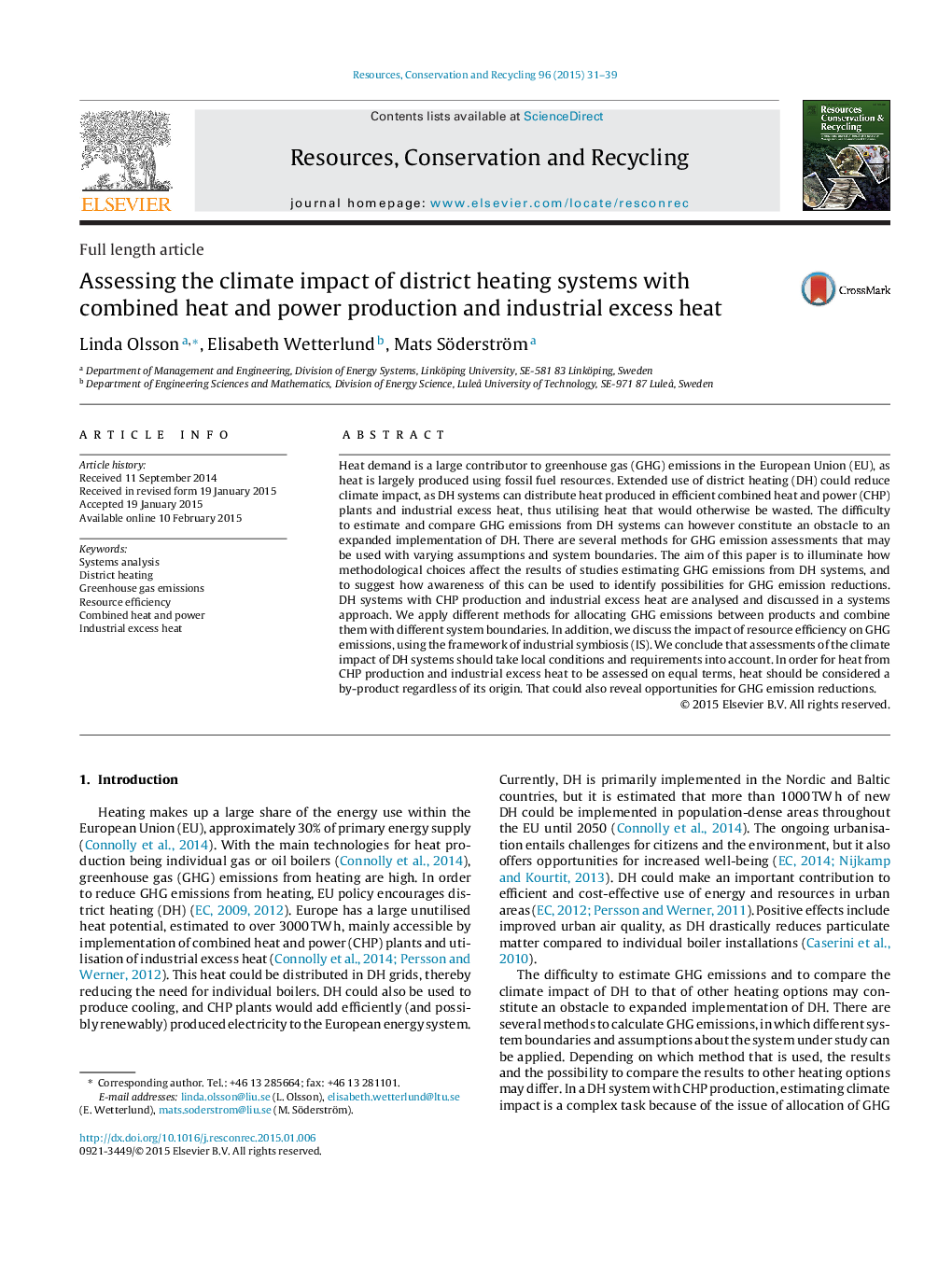| کد مقاله | کد نشریه | سال انتشار | مقاله انگلیسی | نسخه تمام متن |
|---|---|---|---|---|
| 1062840 | 1485693 | 2015 | 9 صفحه PDF | دانلود رایگان |
• The choice of methodology for assessing climate impact of DH systems affects results.
• Local conditions should be considered when assessing district heating systems.
• Heat from CHP plants and industrial excess heat should not be allocated GHG emissions.
Heat demand is a large contributor to greenhouse gas (GHG) emissions in the European Union (EU), as heat is largely produced using fossil fuel resources. Extended use of district heating (DH) could reduce climate impact, as DH systems can distribute heat produced in efficient combined heat and power (CHP) plants and industrial excess heat, thus utilising heat that would otherwise be wasted. The difficulty to estimate and compare GHG emissions from DH systems can however constitute an obstacle to an expanded implementation of DH. There are several methods for GHG emission assessments that may be used with varying assumptions and system boundaries. The aim of this paper is to illuminate how methodological choices affect the results of studies estimating GHG emissions from DH systems, and to suggest how awareness of this can be used to identify possibilities for GHG emission reductions. DH systems with CHP production and industrial excess heat are analysed and discussed in a systems approach. We apply different methods for allocating GHG emissions between products and combine them with different system boundaries. In addition, we discuss the impact of resource efficiency on GHG emissions, using the framework of industrial symbiosis (IS). We conclude that assessments of the climate impact of DH systems should take local conditions and requirements into account. In order for heat from CHP production and industrial excess heat to be assessed on equal terms, heat should be considered a by-product regardless of its origin. That could also reveal opportunities for GHG emission reductions.
Journal: Resources, Conservation and Recycling - Volume 96, March 2015, Pages 31–39
